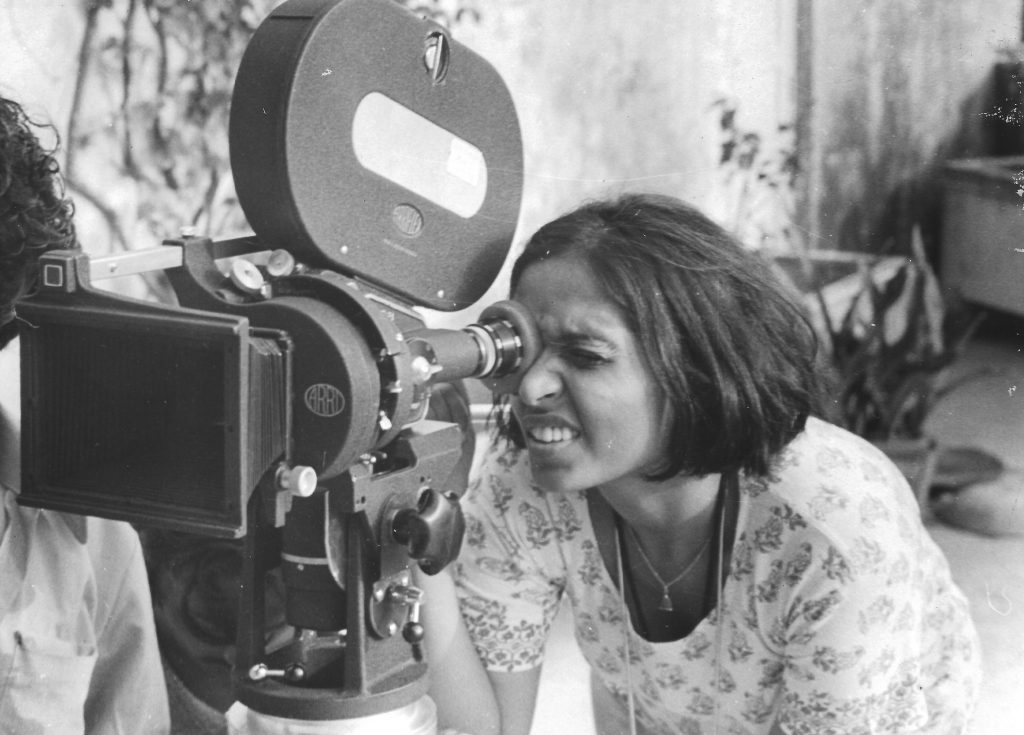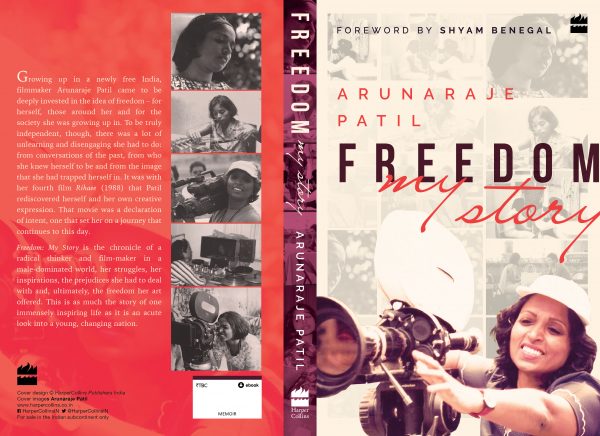Arunaraje Patil’s autobiography Freedom: My Story is a fast-paced book, moving seamlessly between personal anecdotes, her work experiences and her reflections on life. When I asked her about the pace, she said, “It comes I guess, from being a film editor. Cutting to the chase.” In fact, her book editor had to ask her to slow down the pace of the first draft.
Aruna takes us on the journey of her film life inextricably linked with her personal narrative. The obstacles seem insurmountable, and yet, her compassion for people, the understanding that human beings are flawed and make mistakes, and the ability to see life without resentment and bitterness, allow her to face those obstacles with grace. For instance, while making Rihaee (1988), her first film alone away from the Arunavikas duo, she was also dealing with the loss of her 9-year old daughter Gaagi to cancer and her ongoing divorce case with Vikas Desai, her husband. She speaks of the experiences a single woman faces, a woman director faces, dealing with stars in a difficult location without facilities, the generosity of her crew and actors in supporting her, including big stars like Vinod Khanna and Hema Malini.
The difficulties in her personal life seem to have been present during the making of almost all her films, in a strange way. She had to complete her first professional job as editor on Girish Karnad & BV Karanth’s Vamsha Vriksha (1972) after a horrific road accident, where she lost her nose and was on a wheelchair, for the better part of the edit. During the post-production of Shaque (1976), Aruna and Vikas lost their beloved uncle, Vasant Desai. Aruna speaks with great love for him, the lessons he taught her through his own dedication to his work, and also, of how they managed to complete the music of Shaque using his old melodies, because they wished to retain his work entirely in the film.
Her work has been peppered with crew accidents, an emergency appendicitis operation, severe backache, nervous breakdowns, pregnancies and breastfeeding. And above all, dealing with the onset of cancer in her little daughter’s leg during the making of Sitam (1982), and subsequently watching the death of her dear friend, Smita Patil. What shines through is an indomitable spirit to keep working, to keep making a difference with her ideas, despite her own physical and emotional pain.
Aruna also speaks of the several problems that face a woman director and editor, especially in her time when the number of women in the film industry was even lower than today. From a director asking her as an assistant to wear a sari on the set, to film distributors not being comfortable talking of the sale of her film in an office, used as they were to making the deals in hotel rooms with booze and women on the side, from the lack of toilets to the casting couch, the experiences range from plain funny to horrific. Also, the run-ins with the Censor Board, unable to take real depictions of sex or man-woman relationships as opposed to kissing flowers and dancing around trees.
Aruna also diverges from time to time to talk about the basics of film making, delightful lessons on editing, Moviolas and Steinbecks, the experiments of Kuleshov and Pudovkin, puppet animation and special effects in the day of celluloid film, re-recording and sound effects. This allows even the non-film-professional reader to enter her world with ease, to know some of the technicalities involved in the work.
Over the years, Aruna also willy-nilly developed a strong voice for gender equality, in the films she chose to make, and subsequently in workshops, chat shows, and seminars on the subject. She speaks hilariously of being wooed by a LGBT person, her own ignorant stance at the time, and later, sensitizing herself to the issue and becoming a part of the Kashish Festival. She also over time became involved with the Sadhana School and made several documentaries on special children. Her film Patita Pavan on devdasis, took her into the world of sex-workers leading her to becoming involved with the NGO Prerana’s work in Kamathipura, the red light area of Mumbai.
What makes the book special is that Aruna is not afraid to admit her own journey through vulnerability, or the arrogance of being too independent, to compassion and a commitment to be there for others. She is honest about her own shortcomings and mistakes, and goes on from there to confront them. She acknowledges her work in the Landmark Forum as student, teacher and facilitator which helped her to get over her own bitterness after her divorce and take responsibility for her own life.
Her commitment to make a difference and her varied experiences have created a layered narrative in the book, much like a good film. Her observation and introspection of every incident reflects her world-view, a cheerful zest for life, which in one word simply is, inspirational.



